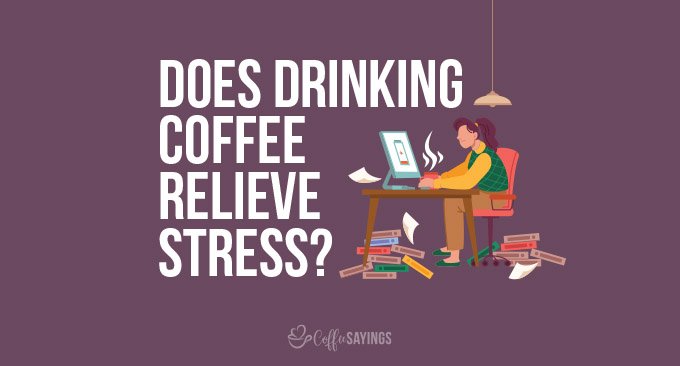Studies have shown that a daily cup of coffee can reduce stress. This habit gives the body time to relax and slow down. A cup of coffee can calm your heart rate, muscles, and mind. Aim to drink it outside, away from distractions, to make the most of the relaxing effects.
Caffeine can have negative side effects, though, so it’s essential to know how much you should drink to maintain your health.
Table of Contents
Does Drinking Coffee Relieve Stress
Caffeine and Stress
A large portion of coffee consumption is caffeine. This substance causes a response in the body that increases your stress level. As a result, caffeine may not be beneficial for your body if you suffer from depression or social anxiety.
If you’re not depressed, it may even increase your stress levels. So, it’s important to find a balance between coffee and your lifestyle. Those who drink coffee each day will likely feel a marked difference in their daily life.
Does Coffee Cause Stress?
However, it’s important to remember that consuming a lot of caffeine can increase stress and cause anxiety. Some people may find this helpful, but it’s important to know your caffeine tolerance before you start drinking a cup. If you’re prone to anxiety, black coffee may not be your best bet.
Adding almond milk to your cup of coffee can also help you feel more relaxed and less anxious. If you’re not sure whether drinking coffee will benefit you, try out some alternatives.
One of the main reasons drinking coffee is the good idea is that caffeine releases a chemical in your brain that helps fight stress. When you drink coffee, you’re stimulating this chemical in the brain. It’s essential to understand caffeine’s effect on your body to reduce stress.
If you drink too much coffee, your body may respond negatively. So, it’s essential to monitor your caffeine intake and avoid it if you’re under stress.
Check out Coffee Mug Warmer You will love it
Caffeine Calms Your Anxiety
While coffee can be beneficial in the short term, it doesn’t do much in the long term. Instead, it blocks the absorption of the calming chemical adenosine produced by the brain.
That’s why drinking coffee has the opposite effect: it makes you feel more alert and jittery. In addition to this, it can cause a mood crash. The study results are still unknown, but it’s a start.
Drawbacks of Consuming Caffeine
While coffee may give you a short-term boost, it is not a permanent solution for your stress. It inhibits adenosine, the hormone that calms the body, while increasing cortisol levels, which are the stress hormones.
It leads to high blood pressure and fatigue. A lack of adenosine causes mood crashes. Therefore, caffeine is a temporary fix for your stress.
Improves Mood
Another study conducted by “Seoul National University” found that coffee can relieve stress. Research suggests that the smell of coffee can improve mood and lower cortisol levels. Moreover, the antioxidants in coffee can help ease tension and make you feel more at peace.
These effects are attributed to the caffeine that coffee contains. This chemical change in the brain can make you feel more relaxed and buoyant. In turn, it can relieve your stress.
Conclusion
Coffee has a vital role in reducing stress. It helps your body release dopamine, which is critical for mood regulation. Furthermore, caffeine is an antidepressant.
It is important to avoid caffeine if you want to be free of stress. The effects of coffee have a lasting impact on the body, so it’s imperative to ensure that you’re getting enough.
You may also like:




